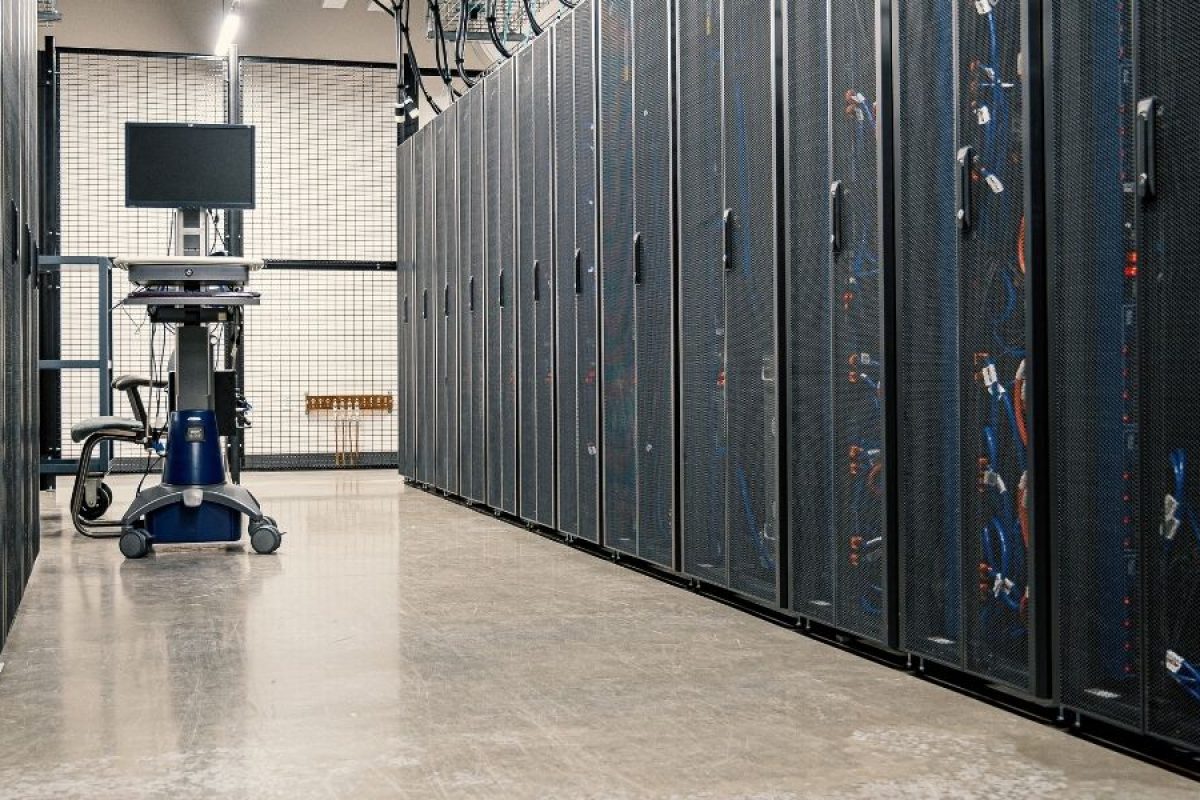Data centers are among the most critical facilities in a company’s digital infrastructure. These centers house hardware such as servers, network devices, and storage systems, requiring uninterrupted service, security, and high performance. Data center construction is not limited to creating a physical space; factors such as energy management, cooling, fire safety, access control, and data security must be considered.
So, what should be considered when building an efficient and secure data center? Here are the key factors:
1. Location Selection and Physical Security
The success of a data center starts with choosing the right location. Proper site selection is crucial for both operational efficiency and security.
Key Factors in Location Selection:
- Low risk of earthquakes and natural disasters: Data centers in seismically active areas require additional reinforcement.
- Strict physical access control: Measures such as biometric access systems, security cameras, and personnel monitoring should be implemented to prevent unauthorized access.
- Climate conditions must be considered: Cooling costs increase in extremely hot regions, requiring efficient cooling systems.
- Redundant power infrastructure is essential: Generators and UPS systems should be in place to prevent power outages.
2. Power and Energy Management
Data centers are high-energy-consuming facilities, and uninterrupted power supply is essential. Effective energy management ensures both cost reduction and system continuity.
Key Energy Management Considerations:
- Uninterruptible power supply (UPS) is mandatory: High-capacity UPS systems prevent server shutdowns during power outages.
- Generator-backed power redundancy is required: Automatic generators should take over in case of a grid failure.
- Low PUE (Power Usage Effectiveness) value is essential: A lower PUE value indicates a more energy-efficient data center.
- Smart energy management systems should be implemented: Real-time power consumption monitoring and automatic load balancing improve efficiency.
3. Cooling and Climate Control
Continuous server operation generates significant heat. Without an effective cooling system, hardware failures become inevitable.
Key Cooling System Considerations:
- An efficient HVAC system is necessary: Airflow should be optimized using strategies such as hot and cold aisle containment.
- Direct liquid cooling (DLC) solutions can be considered: Large-scale data centers can benefit from liquid-based cooling systems to reduce energy consumption.
- Humidity control is essential: Maintaining 40-60% humidity prevents static electricity and corrosion.
- Redundant cooling systems should be installed: Backup systems must activate if a cooling unit fails.
4. Fire Safety
Due to high temperatures and extensive electrical infrastructure, fire risk in data centers is high. Fire prevention systems are crucial for protecting both equipment and data.
Key Fire Safety Considerations:
- Automated fire detection and suppression systems should be in place: Gas-based suppression systems like FM-200 and NOVEC 1230 protect hardware without damage.
- Smoke and heat sensors should be installed: Early warning systems should be placed at critical points.
- Fire-resistant cables and panels should be used: Infrastructure should incorporate flame-retardant materials.
- Manual fire suppression equipment should be available: Fire extinguishers, emergency exit guidance, and staff training are crucial.
5. Physical and Cyber Security
Data centers must be protected from both physical and cyber threats. Security measures should prevent data breaches and unauthorized access.
Physical Security Measures:
- Biometric access control systems should be used: Fingerprint, retina scan, or facial recognition should restrict unauthorized entry.
- 24/7 security camera monitoring is essential: All entrances and exits must be recorded, with constant monitoring of critical areas.
Cybersecurity Measures:
- Strong firewalls and DDoS protection should be implemented: Data centers should have active measures against cyberattacks.
- Encryption and multi-factor authentication should be enforced: Strong authentication systems must be used to prevent unauthorized access.
- Regular security audits and penetration testing should be conducted: Periodic security assessments help detect vulnerabilities.
Conclusion: Plan for a Secure and Efficient Data Center
Data center construction is a complex process requiring planning and engineering. Factors such as location selection, energy management, cooling, fire safety, and physical/cyber security are critical for system continuity and data protection.
Partnering with experts in data center solutions enhances operational efficiency and minimizes risks. If you are looking to build a reliable, efficient, and long-lasting data center, contact our professional team for expert support.
